Reading Time: 4 minutes Many farmers fear the effort to reduce greenhouse gas emissions is going to cost them money. But a new federal program may assist livestock producers in upgrading to a grazing system that advocates say is more profitable and makes ranches more resilient. The federal government wants more cattle producers to adopt rotational grazing and is […] Read more

Rotational grazing set to get a boost from climate action plan
Advocates say the system boosts profits and makes ranches more resilient to drought
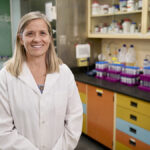
Burp-busting feed additive for cattle still a few years from approval
Alberta research has found 3-NOP works, but the path to regulatory approval is long
Reading Time: 3 minutes A new feed additive can reduce methane emissions in beef and dairy cattle, but unfortunately, it’s not available in North America yet and won’t be for some time. The feed additive, called 3-nitrooxypropanol (or 3-NOP for short), is a methane-inhibiting compound created by Dutch company DSM Nutritional Products. “It’s quite well researched in dairy and beef […] Read more

EU farmers could get cash to curb emissions from belching livestock
Brussels | Reuters — Farmers should get European Union funding to reduce methane emissions from livestock or increase organic farmland, the European Commission said on Thursday, under plans to make agriculture greener. The EU is nearing the end of a two-year battle to overhaul its massive farming subsidies scheme, to attempt to align the agriculture […] Read more
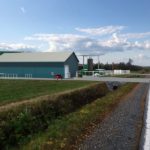
Quebec ag co-op to power up on dairy cattle manure
About a dozen Quebec dairy farms will be getting their collective manure together next year for the province’s first-ever ag co-operative devoted to renewable natural gas. Coop Agri-Energie Warwick, launched Monday, plans to start construction this spring on a $12 million biomethanization plant which will take in slurry and manure from dairy cattle mixed with […] Read more

Gases in well water can be a risk, says provincial water engineer
Oxygen, carbon dioxide, nitrogen, methane and hydrogen sulphide occur naturally in some aquifers
Reading Time: 2 minutes Gases in water wells can be a danger on farms and rural properties, says a provincial agricultural water engineer. Gases can occur naturally in water wells, dissolving in the water while under pressure and then being released when water is pumped out of the well. “Sometimes people complain about the smell, but the gases you […] Read more
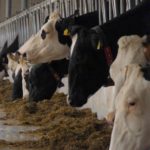
Chemical firm sees strong demand for methane-reducing feed additive
Amsterdam | Reuters — Dutch specialty chemicals company DSM is expecting strong demand for a feed additive which limits the amount of methane burped into the air by cows, its contribution to the global fight against climate change. Methane has a much larger effect on global warming than carbon dioxide (CO2) and reducing methane emissions […] Read more

Producers can reduce carbon hoofprint while boosting profitability
Reading Time: 3 minutes If you want to raise more environmentally friendly cows, there are several things you can do, say experts. And make money from doing them. Over the last 30 years, the beef sector has improved efficiency by 15 per cent, but it can still do more to reduce methane emissions, said John Basarab, senior research scientist […] Read more
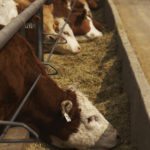
Feed additive could be a methane game changer
Feed additive that can halve emissions while boosting feed efficiency is now undergoing a large-scale study
Reading Time: 3 minutes There’s pressure on the beef industry to be more sustainable, and some of that pressure falls on scientists like Karen Beauchemin. The Agriculture and Agri-Food Canada ruminant nutritionist and her team at the Lethbridge research station are looking for ways to reduce enteric methane — gas produced when digesting feed — from beef cattle. One […] Read more
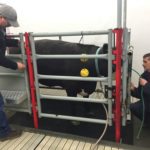
Two feed supplements lower methane emissions
Feeding wheat to dairy and beef cattle also lowered emissions but the effect was short lived
Reading Time: 2 minutes A recent study has found feed supplements can reduce methane emissions from dairy and beef cattle. Researchers from Canada and Australia conducted the three-year study. “We need to know how feed affects methane production, but we also need to know how it affects other aspects of the farm operation, like daily gains in animals, milk […] Read more

California to limit pollutants from diesel exhaust to cow gas
Reuters — California on Monday moved to restrict air pollutants from sources as diverse as diesel trucks and cow flatulence, the latest of several efforts in the most populous U.S. state to reduce emissions leading to climate change. Under a bill signed Monday by Democratic Governor Jerry Brown, the state will cut emissions of methane […] Read more

